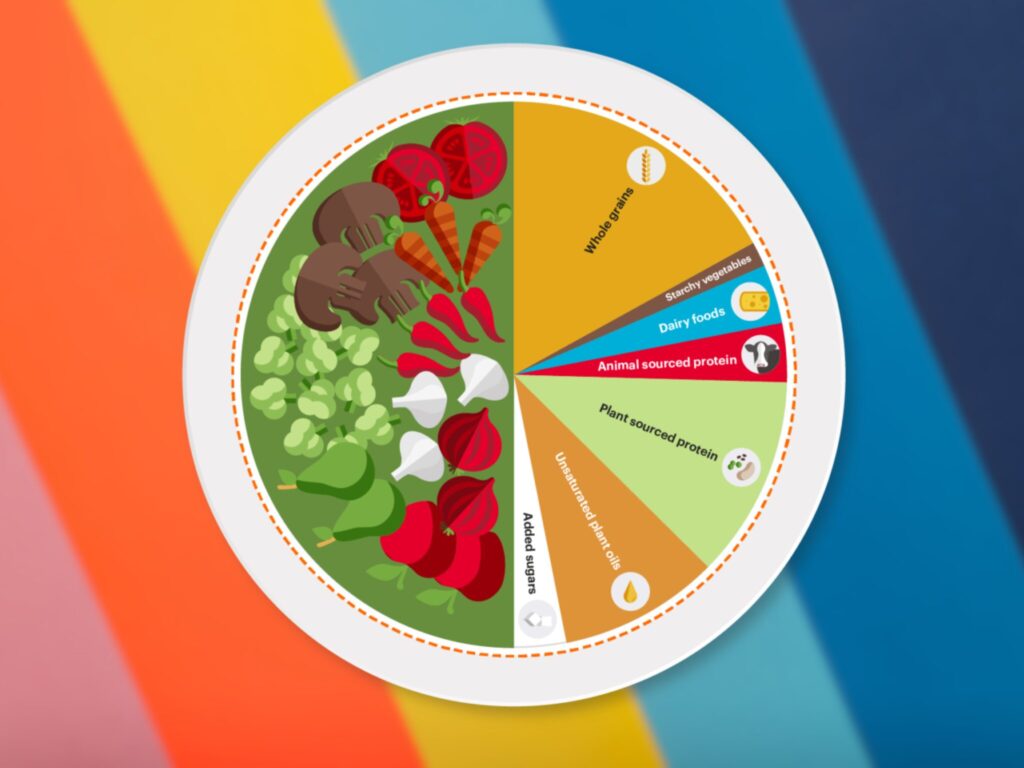Norway Advises Eating ‘Mostly Plant-Based Food’ in New Dietary Guidelines, But Ignores the Climate
4 Mins Read
Norway is the latest European country to advocate for a plant-forward diet in its national dietary guidelines – but its recommended meat intake is still high, since it doesn’t factor in climate impact.
In a year when Austria and Germany have already updated their food-based dietary guidelines to promote a predominantly plant-based diet, Norway has become the latest to join the bandwagon.
The Nordic country has cut its recommended amount of red meat consumption by 30%, from 500g to 350g per week. And instead of advising Norwegians to only opt for lean meat or fish instead, the Norwegian Directorate for Health now endorses plant proteins and meat analogues too.
“Feel free to choose legumes such as beans, lentils and peas for dinner at least once a week, and as a side dish or spread,” the new guidelines read. “Processed legume products such as vegetarian burgers, sausages and falafel should contain little salt and fat.”
And crucially, the health directorate suggests that “a healthy and varied vegetarian or vegan diet that covers energy needs will also contain sufficient protein”.
Norway endorses plant proteins and dairy analogues

“A healthy and varied diet can be put together in many ways and adapted to different cultures, traditions and ways of life. The most important thing is that it is varied and consists mostly of food from the plant kingdom,” the guidelines note.
This includes foods like vegetables, fruits, whole grains, beans, lentils, peas and nuts. Just like its counterparts in Germany and Austria, the Norwegian Directorate for Health proposes a ‘plate model’ with 50% fruits and vegetables, and 25% carbohydrates and proteins each.
“To eat more plant-based, beans, lentils and peas can easily replace all or some of the meat in dishes such as stews, soups, meat mixes, lasagne or tacos,” the new guidelines say. “Use beans, lentils and peas and their products, such as hummus, bean and lentil paste, tofu and other soy products in salads, or as a topping.”
The recommendations note how legumes contain dietary fibre, protein, iron, zinc and other nutrients, and a high intake can protect against cancer and reduce mortality: “In a vegetarian or vegan diet, beans, lentils, peas, nuts and seeds will be good sources of protein and other nutrients.”
And while the previous version didn’t mention dairy alternatives, the updated edition states that “plant-based drinks can contribute many of the same nutrients”, and recommends choosing products that have added calcium, iodine, riboflavin and vitamin B12.
Moreover, Norwegians are advised to choose unsaturated vegetable oils and soft margarine instead of butter, hard margarine and tropical oils like coconut and palm, as well as eat 20-30g of unsalted nuts every day.
Ignoring environmental impact a big miss amid high climate denial

The Norwegian food-based dietary guidelines recognise that red meat consumption is linked with increased risks of colon and rectal cancer: “Both a high intake of red meat and a high intake of processed meat are among the four highest diet-related risk factors for the burden of disease in the Nordic and Baltic countries.”
But the recommended amount of 350g per week is still much higher than what’s stipulated in the EAT-Lancet Commission’s Planetary Health Diet, which is associated with a 30% lower risk of death from all causes and a 17% reduction in global food emissions. It suggests limiting red meat to just 98g a week, 72% less than Norway’s latest guidelines.
This is because the Norwegian Directorate for Health is solely focusing on nutrition and health, instead of also taking climate impacts into account – something that both Germany and especially Austria have done.
This is a surprising contrast to the 2023 Nordic Nutrition Recommendations – a joint dietary guideline for the Nordic nations – which integrate environmental aspects to align with the Nordic Vision to “be the most sustainable and integrated region” globally by 2030.
The collaborative Nordic advice promotes a predominantly plant-based diet rich in produce, berries, legumes, and whole grains. “We cannot, and will not, turn a blind eye to the scientific evidence of how our consumption impacts our planet,” the guideline states.

Ignoring the planetary impact of the food system – where meat and dairy make up 57% of emissions, twice as much as plant-based foods – is concerning for a country where climate denial is high. A study published in 2018 suggested that 36% of the population think climate change is a hoax. Despite the crisis worsening since then, these sentiments are still high, with recent analysis of a 2023 survey suggesting that 27% of Norwegians are either doubtful or dismissive of climate change.
So while the inclusion of plant proteins and meat and dairy analogues is a good first step, a lot more needs to be done to account for climate change in Norway’s dietary guidelines.



